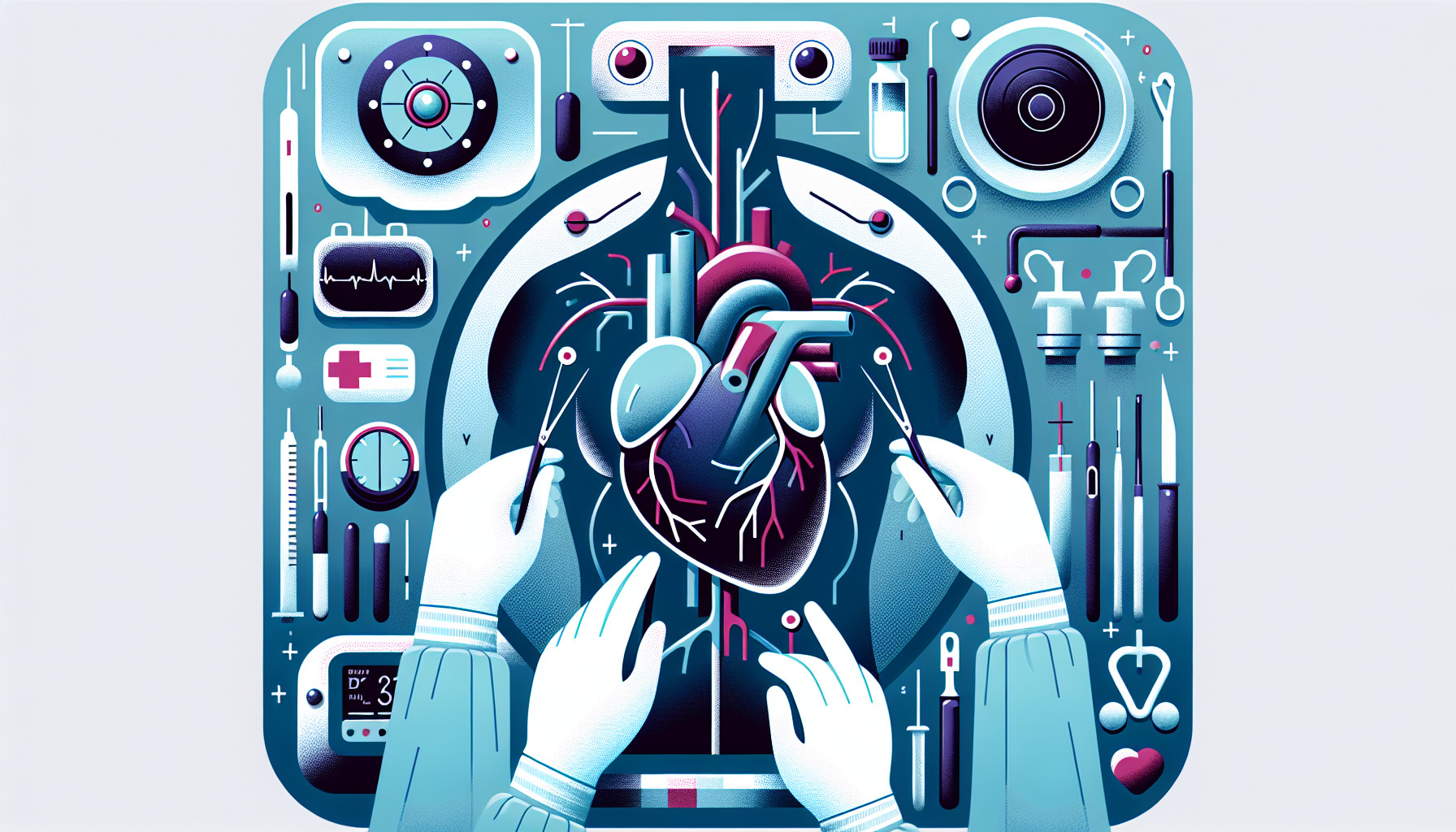Our Summary
This study examined the impact of using arterial grafts for a heart procedure called coronary artery bypass grafting (CABG). The researchers compared two groups of patients who had this operation. Group A had the operation between 2000-2003 and Group B had the operation between 2009-2012.
They found that Group B had more patients over 80 years old, more patients with diabetes, and more patients who had previously had a different heart procedure. Despite this, the death rate in the hospital for both groups was low and not significantly different.
However, Group B had a higher number of patients who developed a heart rhythm problem called atrial fibrillation and a deep infection in the chest after surgery. But using more arterial grafts did not increase the risk of death or chest infection.
In simple terms, despite patients being older and having more health problems, using more arterial grafts in heart bypass surgery still had good early results.
FAQs
- What is the impact of using arterial grafts in coronary artery bypass grafting (CABG)?
- Did the use of more arterial grafts increase the risk of death or chest infection in patients undergoing CABG?
- Did the study find any difference in the rate of complications between the two groups of patients who had the operation in different time periods?
Doctor’s Tip
A helpful tip a doctor might give a patient about coronary artery bypass is to discuss with your healthcare provider the possibility of using arterial grafts during the surgery, as this may lead to better outcomes and lower risk of complications. It’s important to weigh the potential benefits of arterial grafts against the risks and make an informed decision with your healthcare team.
Suitable For
Patients who are typically recommended for coronary artery bypass surgery are those with severe coronary artery disease, which is often caused by a buildup of plaque in the arteries that supply blood to the heart. This can lead to chest pain (angina), shortness of breath, and an increased risk of heart attack.
Specific criteria for recommending coronary artery bypass surgery may include:
- Severe blockages in multiple coronary arteries
- Left main coronary artery disease
- Severe blockages in the proximal (beginning) of the coronary arteries
- Patients who have not responded well to other treatments, such as medication or angioplasty
- Patients with diabetes or other high-risk factors for heart disease
Overall, the goal of coronary artery bypass surgery is to improve blood flow to the heart muscle, reduce symptoms, and lower the risk of future heart events.
Timeline
Before coronary artery bypass surgery, a patient may experience symptoms of coronary artery disease such as chest pain, shortness of breath, and fatigue. They may undergo tests such as an electrocardiogram (ECG), stress test, and coronary angiography to diagnose the extent of the blockages in their arteries.
After coronary artery bypass surgery, the patient will spend several days in the hospital recovering. They will be closely monitored for any complications such as infection, bleeding, or irregular heart rhythms. The patient will also undergo cardiac rehabilitation to help them recover and improve their overall heart health. Over time, the patient should experience relief from their symptoms and improved heart function due to the increased blood flow from the bypass grafts.
What to Ask Your Doctor
- How will using arterial grafts for my coronary artery bypass surgery impact my recovery and long-term outcomes compared to other types of grafts?
- What are the potential risks and complications associated with using arterial grafts for this procedure?
- How does my age and other health conditions, such as diabetes, affect the success of using arterial grafts for my surgery?
- Will using more arterial grafts increase my risk of developing atrial fibrillation or a deep chest infection after surgery?
- How do the results of this study apply to my individual case and what can I expect in terms of recovery and outcomes?
Reference
Authors: Kindo M, Hoang Minh T, Perrier S, Bentz J, Mommerot A, Billaud P, Mazzucotelli JP. Journal: Interact Cardiovasc Thorac Surg. 2017 Jan;24(1):71-76. doi: 10.1093/icvts/ivw319. Epub 2016 Sep 22. PMID: 27659151
